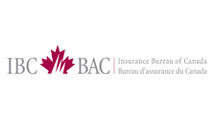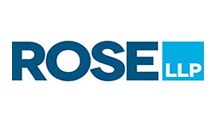
Dispute Resolution on Construction Projects
By George Jergeas, PhD., P.Eng.
 In this concluding article on construction disputes, we focus on five of the more formal dispute resolution methods available in the construction context. Those methods include negotiation, the use of project neutrals, owner review boards, dispute resolution boards and mediation, each with varying degrees of speed and party control over results. Should these fail to resolve issues, then the traditional approach to arbitration or the courts is still available.
In this concluding article on construction disputes, we focus on five of the more formal dispute resolution methods available in the construction context. Those methods include negotiation, the use of project neutrals, owner review boards, dispute resolution boards and mediation, each with varying degrees of speed and party control over results. Should these fail to resolve issues, then the traditional approach to arbitration or the courts is still available.
Disputes on construction projects cannot be avoided, but arbitration and legal proceedings can be, with a little diligence, creativity, and sound judgement. Negotiation is by far the best way to resolve a dispute. It is cost effective and, importantly, it gives parties control over the outcome.
If a claim situation arises, the issue should be resolved at the project level by negotiation between the involved parties. In the event the claim cannot be resolved at the project level, it becomes a “dispute” that may require alternative dispute resolution (ADR), arbitration and/or litigation.
ADR can be defined as the various ways to resolve disputes without resorting to time-consuming, and expensive arbitration or litigation. Arbitration is excluded from ADR by some, in part because:
- It is a costly and lengthy process, diverting resources away from value-added efforts.
- It harms and damages the business relationships and reputation of the parties.
The owner’s project management team must refer to their contract and follow the prescribed dispute resolution clause. Regardless, this article identifies and discusses five non-binding forms of ADR used in the construction industry when a dispute arises and project level staff cannot resolve the dispute by negotiation.
Project Neutral
This method involves appointing an impartial professional to offer unbiased advice and decisions. This is a third party brought on-site to listen to both parties and provide an evaluation of their positions. As a result, the parties learn at an early stage of the dispute just how strong their cases actually are in the eyes of a neutral party. The neutral evaluation may point the way towards a negotiated settlement that both parties can agree upon, and which satisfies their needs.
Owner Review Board
In this method, owners—particularly those with larger, long duration construction programs—establish in-house review boards to hear disputes that cannot be resolved at the project level. These boards typically consist of very senior employees (or retired senior employees) of the owner’s staff. They are empaneled to review disputed issues in-house in an effort to resolve issues such as personality conflicts or misinterpretation of contract requirements. The owner’s legal team can help. Such boards may however be seen as biased by outside parties.
Dispute Resolution Boards (DRB)
A dispute resolution board is a panel of three experienced, respected, and impartial reviewers, which is organized before construction begins and periodically meets at the jobsite. The owner usually selects a member for approval by the contractor, the contractor selects a member for approval by the owner, and these two individuals select the third member to be approved by both parties. The three members then select one of them to serve as chair, with the approval of the owner and contractor.
The DRB reviews the contract documents, becomes familiar with the project procedures and participants, and is kept abreast of job progress and developments. They meet with owner and contractor representatives during regular site visits and encourage the resolution of disputes at the job level.
Disputes can be referred to a DRB hearing, where each party explains their position and answers questions. The DRB then considers the relevant contract documents, correspondence, other documentation, and the particular circumstances of the dispute.
The DRB prepares a written, non-binding recommendation for resolution of the dispute, which includes evaluation of the facts, contract provisions and the rationale for their conclusion.
Mediation
Mediation is a voluntary process in which the mediator assists parties in reaching an agreement in a collaborative, consensual and informed manner. In a typical mediation, the parties jointly select a mediator whose role is to assist in reaching a mutually satisfactory resolution of the dispute.
The mediator’s objective is to facilitate the parties in reaching the most constructive agreement themselves. The mediator is obligated to work on behalf of each party equally and cannot render individual legal advice to any party. A mediator does not render a decision; instead, they assist the parties in assessing their respective risks and finding areas of compromise.
Any recommendations or statements made by the mediator do not constitute legal advice and mediation is not a substitute for independent legal advice. The parties are encouraged to secure advice throughout the mediation process but are strongly advised to obtain independent legal review before signing any mediated agreement.
Fact-Based Mediation
In this method, a claims or ADR consultant is jointly appointed by the parties to provide “fact-based mediation” services when resolution of the issue(s) requires some analysis before the problem can be addressed in an objective fashion. The two parties engage one entity to provide a complete forensic analysis in an objective manner, resulting in a final report presented to both sides.
George Jergeas, PhD., P.Eng. Professor Emeritus of Project Management, University of Calgary. George has a strong passion in collaborative relationships, claims & disputes, and project management consulting and training. George appeared as an Expert Witness before the Commission of Inquiry regarding the Muskrat Falls project. Currently he is engaged in a mediation of a construction dispute in Alberta.












